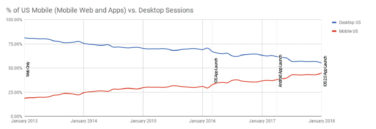PM360’s Focus On section examines examines a specific area of the life sciences industry. In this issue, we take a closer look on the importance of patient education to Healthcare Professionals and navigating the challenges that arise. From important changes to engaging physicians to finding out how new technologies will help address HCPs education needs, hear what our specialist had to say.
What do you think are the most important changes to engaging physicians our industry needs to keep in mind now?
 ABIGAIL MALLON
ABIGAIL MALLON
Chief Patient Experience Officer, VMS BioMarketing
Physician burnout is on the rise. Each day, providers confront challenges including navigating an increasingly complex healthcare system, stress from long hours and staff shortages, caring for an aging population, less time in direct patient care, and the spread of medical misinformation. According to a recent survey, 95% of physicians say they are interested in learning about clinical trials and new treatments, but 68% said they feel overwhelmed by the amount of information necessary for them to stay current. With an ever- increasing demand for their time and attention, it is more difficult than ever for biopharma representatives to convey their message to the physician audience. Still, it is critical for practicing physicians to be informed about new treatments and the patient support programs industry provides to help patients start and stay on life-critical therapies. Despite the billions of dollars spent by the industry on patient support programs, awareness of these programs is shockingly low. In one survey, only 12% of HCPs said they felt biopharma companies are very effective at providing HCP education and training to them.
Tried and true outreach strategies for gaining the time and attention from HCPs is via peer-to-peer conversations with clinical professionals who serve as a trusted resource to support gaps in knowledge about novel or complex therapies that require increased education and support. In the survey mentioned, 87% of HCP respondents said the person providing them education and training should be a peer to them and most (61%) preferred this type of education from biopharma to be in person.
Professionals such as clinical nurse educators and nurse navigators are well positioned to provide information to physicians, often having priority access to community practices to share information with the healthcare provider team. The importance of patient education cannot be overstated and the availability of pharma’s support programs must be better understood by practicing physicians.
abigail.mallon@vmsbiomarketing.com
“…95% of physicians say they are interested in learning about clinical trials and new
treatments, but 68% said they feel overwhelmed by the amount of information necessary for them to stay current.”
The opinions expressed by the authors in the Think Tank section are their own and do not necessarily reflect those of their affiliated companies or organizations
 CAMERON THOMPSON
CAMERON THOMPSON
General Manager of AnswerSuite, a Syneos Health Company
There are two shifts that have emerged in engaging physicians over the last few years.
The first being more message volume and less relevance. Just as marketing effectiveness and expectations have risen in consumers, so too have expectations risen by the physician. Continuing to increase frequency in multi- channel messaging with less effectiveness can lead to a data deluge. A broad industry decline of in-person sales and a push to create efficiencies in the digital delivery of messages means more digital information is coming to physicians than ever before. Oftentimes these are in contradictory formats established by various competing stakeholders, thus adding to confusion. Presenting information in the most succinct format along with foundational marketing principles such as personalization and next best call to action, delivers messaging in a coordinating and relevant manner. A top physician request that we see is to provide an illustration of how their opinions and actions affect broad healthcare outcomes.
The second to increase in patient-oriented communication and support for physicians. Materials that allow efficient communication between physicians and patients are on the rise. As the physician role continues to expand, professionals have less time with their patients. As we have seen, this results in an area of disjointed patient communication. More concentrated patient communications efforts bring practice effectiveness directly to physicians to use. This emphasis has been overwhelmingly positive in addressing both patient needs and increasing effectiveness of the office practice. As an example, we hear requests from the physicians that more in-language patients and access materials are needed.
Time remains the most important aspect of the Professional Physician practice. To create awareness, engagement, and “top of the inbox” position, advocates will need to be more relevant and succinct outlining the benefits to the practice and the professional’s time.
cameron.thompson@syneoshealth.com
 GARY LYONS
GARY LYONS
Chief Transformation Officer, Medical, Avalere Health
Physicians want increased personalization, relevance, and convenience—at the time and place of their choosing. Meeting these needs and maximizing engagement requires a connected, data-driven, and technology-enabled approach based on a deep understanding of individual healthcare professional’s behaviors and preferences.
Achieving this starts with a robust vision for developing a digitally transformed, customer-centric commercial and medical engagement model. There is a fantastic opportunity for medical teams to become a unifying force in pharma, working in unison commercial teams to define customer journeys that ensure physicians receive a much more connected and less disparate experience.
When mapping engagement activities, consider customer needs rather than just focusing on the data to communicate and the traditional channels of dissemination. This means fully defining and understanding your target audience in terms of their clinical and learning behaviors and then addressing their learning needs through their preferred channels and information formats. With these insights, teams can design content that is not only much more concise and bite-size, but that is also easy to assimilate and meets learning preferences. This will lead to better rates of adoption, behavior change, and onward action. Content must demonstrate impact in the real world and be medically relevant and peer-related, with physicians increasingly favoring medical cases and evidence generated by their colleagues over traditional top-down cascade approaches.
Finally, this brings us to next-level engagement. Technologies like GenAI, digitally driven modular content, and personalized communications that drive physicians to take the next action are powerful facilitators of connected journeys and unified engagement approaches. By leveraging these innovations and building a unified approach, Medical teams can sit at the center of cross-functional audience engagement, developing innovative engagement strategies that maximize learning and clinical outcomes for patients.
gary.lyons@avalerehealth.com
How will new technology help address HCP education needs in the near future?
 ELISE WHITAKER
ELISE WHITAKER
Director, Conversational Experiences
FCB Health New York, An IPG Health Company
In recent years, the healthcare industry has seen a seismic shift, thanks to the advent of emerging technologies such as Augmented Reality (AR), Virtual Reality (VR), Advanced Data Analytics, and Conversational AI. The pace of this evolution has dramatically accelerated, especially in the realm of conversational experiences, a domain where our IPGHealth team has been immersed.
For healthcare marketers, Conversational AI solutions are a game-changer. They offer seamless, frictionless engagement with HCPs—providing 24/7, on-demand access to regulated content through human-like interactions. These solutions can adapt in real-time to an HCP’s level of knowledge, ensuring that each learning experience is as personalized as it is effective.
Conversational Simulation Assistants are gaining traction, offering brands innovative ways to educate HCPs. By simulating interactions with patients, these tools allow physicians to hone their communication skills, effectively bridging the gap between theoretical learning with practical experience. Additionally, they provide valuable insights by evaluating and scoring an HCP’s subject knowledge, providing immediate feedback on an HCP’s understanding.
The rise of Generative Search Agents, powered by proprietary language models, marks another thrilling development in our industry. Like solutions powered by traditional knowledge bases, these agents understand natural language queries, offer tailored recommendations, and provide
supplementary resources like videos, graphs, and downloadable documents.
The flexibility to escalate queries to live agents adds an additional layer of support. Using models that are confined to approved content insures regulation in our industry.
For marketers, these technologies are not just about enhancing HCP education; they’re a source of operational efficiencies and insights. Through the data captured in conversational engagements, we can gain a deeper understanding of HCP content preferences, information-seeking behaviors, and engagement patterns, enabling more targeted, effective, and scalable future interactions.
As we look to the future, the potential of conversational experiences to transform HCP education is immense. These tools promise to deliver personalized, immersive learning experiences that are set to redefine the landscape of healthcare marketing!
Elise.Whitaker@fcbhealth.com
“Conversational Simulation Assistants are gaining traction,
offering brands innovative ways to educate HCPs.”
 WARREN RAYE
WARREN RAYE
Medthority Publishing Director, EPG Health, an IQVIA business
New and emerging technologies present much potential to meet the educational needs of HCPs, now and in the near future.
Telemedicine platforms already exist, allowing HCPs to conduct consultations, attend conferences, and partake in training sessions remotely. Meanwhile, spatial computing is an exciting prospect given its potential to simulate realistic medical scenarios. HCPs could practice procedures, surgeries, and patient interactions in a safe environment. Realistically, however, we are still several years away from its practical and everyday use. The impacts of artificial intelligence (AI) and machine learning (ML) on HCP education cannot be ignored. Platforms, such as Medthority, personalize learning experiences for HCPs through AI/ML. By analyzing large datasets of clinical outcomes, treatment protocols, and medical research findings, the trends, best practices, and areas for improvement in HCP education can be identified. Predictive modeling allows for the forecasting of future healthcare challenges and educational needs. Additionally, behavioral modeling by analyzing learning preferences, knowledge gaps, and engagement makes it possible to recommend relevant educational content, adaptive quizzes, and simulations tailored to the needs of each HCP.
Interactive social learning platforms enable HCPs to share knowledge, discuss case studies, and collaborate, thereby facilitating peer-to-peer learning and networking. Gamification and simulation-based training modules foster active learning experiences for HCPs. Such platforms attempt to make learning more enjoyable and motivate competition, hopefully leading to better retention of knowledge and skills. Combining these platforms with AI/ML-driven personalized learning, such as Medthority, and ensuring they are fit for use on smartphones and tablets is key to their success.
By leveraging some, or all, of these emerging technologies, the education of HCPs can be improved overall, leading to better healthcare delivery and patient outcomes.
Warren.raye@epghealth.com
 ERIN FITZGERALD
ERIN FITZGERALD
CMO Sermo
We are in the midst of perhaps the greatest technological innovation ever–AI. The vast majority of changes we’ll see surrounding physician engagement in our industry will be due to AI’s transformative potential. AI will enable us to create, review, serve, and measure engagement campaigns faster than ever before. Now is a time for learning and testing. Organizations must prioritize an AI-first strategy to drive meaningful improvements in physician engagement and ultimately enhance patient care outcomes.
New technology like this will help us address healthcare professional (HCP) education needs by understanding gaps, testing and personalizing content, and optimizing strategies based on impact metrics.
Real-time research technologies enable companies to directly solicit feedback from physicians regarding their educational content preferences. New research technologies can even detect sentiment and emotion around specific topics, ensuring that educational initiatives align closely with the interests of HCPs.
AI-analysis of organic conversations among physicians enables us to gain deeper insights into the topics that are (and are not) being discussed within the medical community, informing content development efforts. Once the education material has been created, smart campaigns can be designed to deliver targeted digital education. These campaigns utilize triggers to identify the most relevant educational content for individual HCPs, ensuring we deliver personalized learning experiences tailored to their specific needs.
And lastly, measurement and feedback is crucial. Using agile research, you can gain insights and feedback from your target customers to understand what’s working and fuel future engagement strategies. Now–imagine when you add AI to that analysis and integrate additional data sets, the possibilities are endless!
erin@sermo.com










